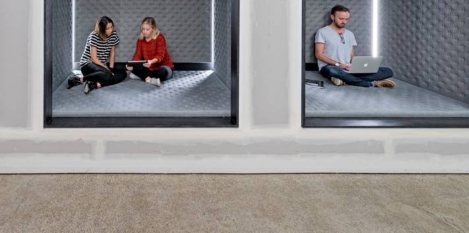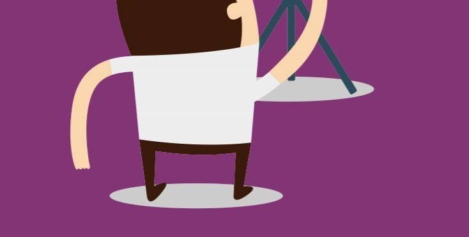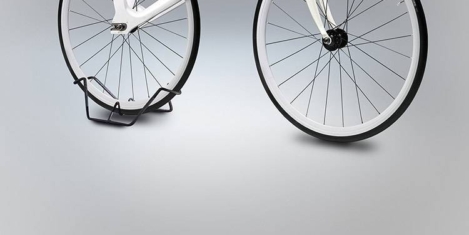March 6, 2019
Beware the great apex fallacy of workplace design 0
 Of all the memes and narratives that corrupt public discourse about workplace design, the most pernicious is the one that suggests there is a linear evolution to some grand end point called the Office of the Future. There is a natural human inclination to buy this sort of idea, fed by an assumption that what we find most interesting, aspirational and hence what we read and talk about forms a goal. Read any style magazine and you’ll see the same process at work in every facet of our lives. This is why so many people are quick to consume and then regurgitate the idea that what we see happening in the world’s great tech palaces and creative offices represents the apogees of design to which the rest of us must one day succumb. (more…)
Of all the memes and narratives that corrupt public discourse about workplace design, the most pernicious is the one that suggests there is a linear evolution to some grand end point called the Office of the Future. There is a natural human inclination to buy this sort of idea, fed by an assumption that what we find most interesting, aspirational and hence what we read and talk about forms a goal. Read any style magazine and you’ll see the same process at work in every facet of our lives. This is why so many people are quick to consume and then regurgitate the idea that what we see happening in the world’s great tech palaces and creative offices represents the apogees of design to which the rest of us must one day succumb. (more…)













 We might think that an inability to absorb the vast amount of information generated by our fellow humans and their machines is something of a modern phenomenon, but we’ve always known we can have too much of this particular good thing. Distringit librorum multitude, wrote Seneca in the First Century. An abundance of books is a distraction.
We might think that an inability to absorb the vast amount of information generated by our fellow humans and their machines is something of a modern phenomenon, but we’ve always known we can have too much of this particular good thing. Distringit librorum multitude, wrote Seneca in the First Century. An abundance of books is a distraction.




 When comparing the results of 18 – 29-year-olds with other age brackets, we often find that researchers are bending over backwards to find some kind of pattern. Now a new survey a new study from Automatic Data Processing (ADP) finds unsurprisingly, that there is actually little difference between the age groups regarding those who go to work because they like their company and feel that they’re on the same mission. Of those aged 30 – 49 years old, 9 percent choose this option as did 11 percent of 50 – 64-year-olds.
When comparing the results of 18 – 29-year-olds with other age brackets, we often find that researchers are bending over backwards to find some kind of pattern. Now a new survey a new study from Automatic Data Processing (ADP) finds unsurprisingly, that there is actually little difference between the age groups regarding those who go to work because they like their company and feel that they’re on the same mission. Of those aged 30 – 49 years old, 9 percent choose this option as did 11 percent of 50 – 64-year-olds.




 With the rise of both cloud-based technology and the worldwide gig economy, the last ten years of the 21st century have seen some near-revolutionary changes in workplace practice. Entrepreneurs everywhere have been more than happy to make use of these developments, taking advantage of the new business models these changes have brought. For example, IDG found that
With the rise of both cloud-based technology and the worldwide gig economy, the last ten years of the 21st century have seen some near-revolutionary changes in workplace practice. Entrepreneurs everywhere have been more than happy to make use of these developments, taking advantage of the new business models these changes have brought. For example, IDG found that 










March 7, 2019
A workplace chatbot might soon be one of your new best friends
by John Hildebrands • Comment, Technology